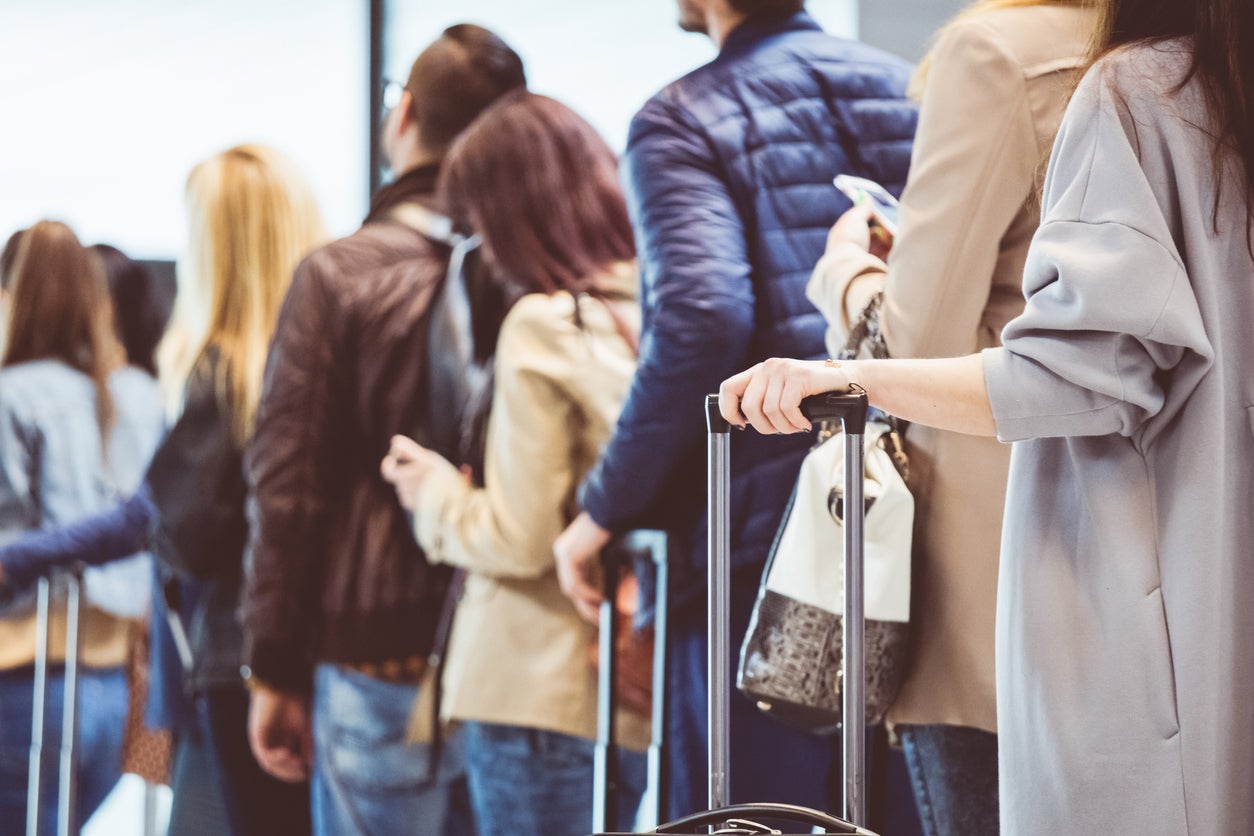Heathrow airport queues worse than ever before, investigation finds
‘Queues are longer than they have ever been and complaints are at an all-time high,’ says consumer watchdog

Your support helps us to tell the story
From reproductive rights to climate change to Big Tech, The Independent is on the ground when the story is developing. Whether it's investigating the financials of Elon Musk's pro-Trump PAC or producing our latest documentary, 'The A Word', which shines a light on the American women fighting for reproductive rights, we know how important it is to parse out the facts from the messaging.
At such a critical moment in US history, we need reporters on the ground. Your donation allows us to keep sending journalists to speak to both sides of the story.
The Independent is trusted by Americans across the entire political spectrum. And unlike many other quality news outlets, we choose not to lock Americans out of our reporting and analysis with paywalls. We believe quality journalism should be available to everyone, paid for by those who can afford it.
Your support makes all the difference.Heathrow airport’s immigration queues were at an all-time high last summer, a new investigation from Which? Travel shows.
Headlines in 2021 were abuzz with stories of five-hour queues, passengers fainting during the wait, terminal areas being too crowded to socially distance in and furious families missing flights.
This was despite record-low air passenger numbers due to Covid travel restrictions.
The new Which? data backs up this picture - comparing queue times in August and September for the past 10 years, it shows that they have become steadily longer over the past decade.
Border Force aims to get 95 per cent of EU (and UK) passengers through immigration in less than 25 minutes - in 2021, this had dropped to a 10-year low of 82 per cent at some terminals.
In 2012, Border Force was getting 100 per cent of passengers through in 25 minutes or less, the report shows.
Its target for non-EU passengers is to get them through security in 45 minutes - but in September last year, only 62 per cent of these passengers moved through in this time or less.
Which? points out that this is despite unusually low passenger numbers during the pandemic: in September 2021, 2.6 million people used Heathrow, compared with pre-pandemic levels of 6.77 million in September 2019.
Covid-related paperwork was found to account for some of the delays - Border Force staff were in charge of inspecting passenger locator forms as well as proof of vaccination and PCR test certificates, meaning the average time spent at immigration points grew from two to four minutes per person to an average of eight to 12 minutes.
This was coupled with the fact that the number of Border Force employees - recruited and managed by the Home Office - only grew by 14 per cent to cope with this new workload.
Only 1,131 additional staff members were recruited in the past year, the report found.
But a bigger factor was Brexit, Which? found, with a huge increase in the number of EU residents stopped at Heathrow.
As an example: in the first quarter of 2021, a total of 3,294 EU citizens were stopped compared with just 498 in the same period of 2020 – a 561 per cent jump.
The latter figure was at a time when air traffic was 20 times higher than in the 2021.
“These are really big numbers and we need to ask why they are so big. It is totally disproportionate. Some people are simply subject to greater scrutiny than others,” says Michaela Benson, a professor of public sociology at Lancaster University.
In the report, Which? Travel warns that the pattern could continue into 2022, saying “we are in danger of facing more nightmarish queues to re-enter the country again this summer”.
“Queues are longer than they have ever been and complaints are at an all-time high, despite the fact passenger numbers were at an all-time low last summer.”
Last year some Border Force guards claimed that staff were beginning to quit and absences were rising due to increased work pressures and a “nightmare” new rota - though a Home Office spokesperson at the time called these allegations “inaccurate”.
Lucy Moreton from the Immigration Service Union (ISU) backed up this claim, telling Which? Travel this month that the government was “treading water” with Border Force recruitment.
She said: “We never lack for applicants, but they seldom stay. The shifts are really damaging to health, so we are losing them as fast as we can recruit them.”
Join our commenting forum
Join thought-provoking conversations, follow other Independent readers and see their replies
Comments